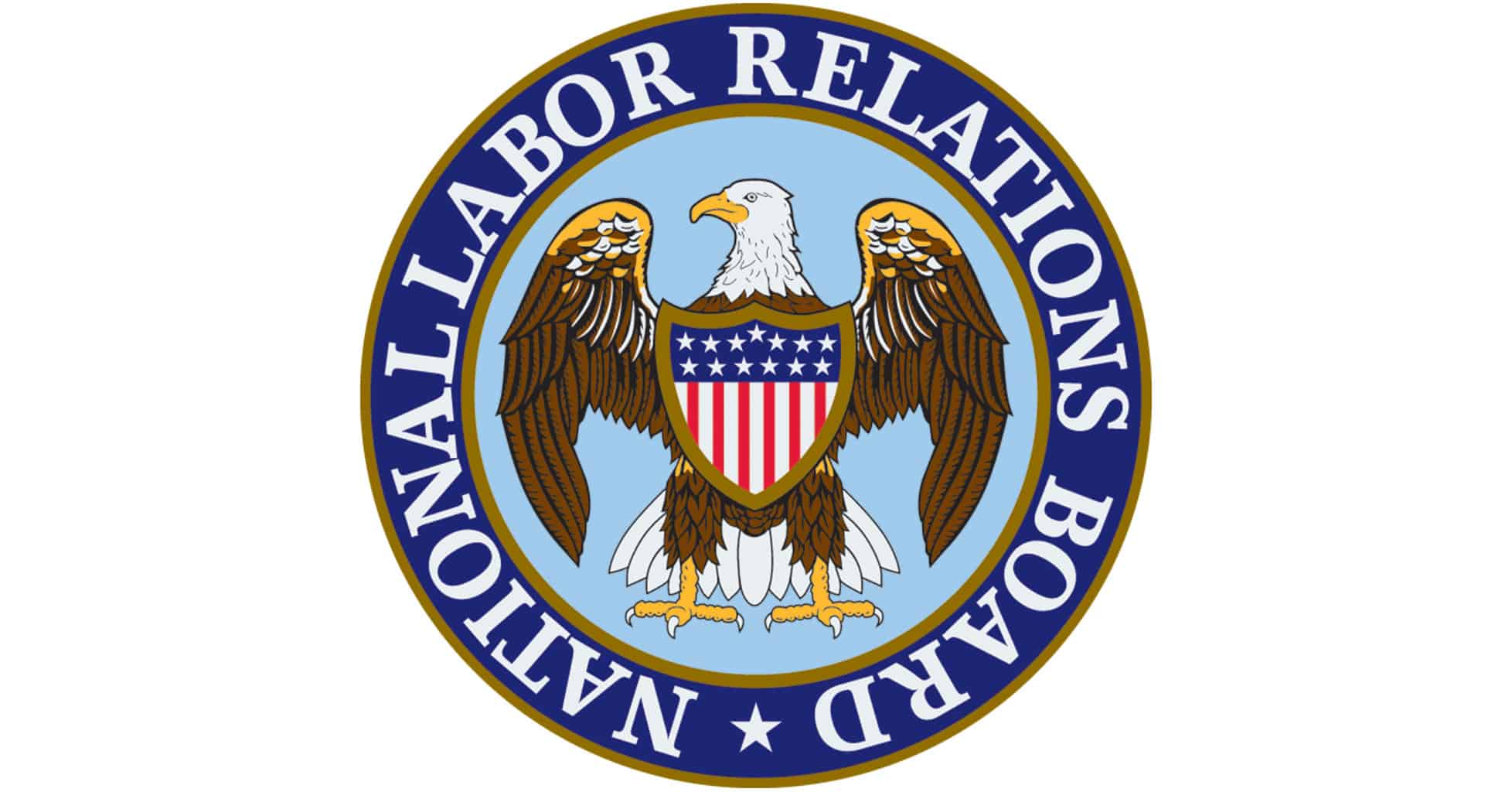Labor Relations Chief Corrects Record on ‘Joint Employer’ Rule

 Chairman John Ring delivered the latest salvo in response to the manufactured “scandal” at the National Labor Relations Board (NLRB). Democrats, with help from the NLRB inspector general, have improperly accused members of the board of bogus conflicts of interest that have impeded the policymaking ability of the agency. These attacks are political, and have no factual basis.
Chairman John Ring delivered the latest salvo in response to the manufactured “scandal” at the National Labor Relations Board (NLRB). Democrats, with help from the NLRB inspector general, have improperly accused members of the board of bogus conflicts of interest that have impeded the policymaking ability of the agency. These attacks are political, and have no factual basis.
Put simply, Democrats in Congress do not like the NLRB’s policy agenda and are throwing anything and everything at the board to ensure they do not reverse the Obama administration’s job-killing “joint employer” standard established in Browning-Ferris. This decision imposed an overly broad and vague joint employer standard that inappropriately increases employer liability and eases union organizing.
The Browning-Ferris decision has already take an enormous toll on the economy. An International Franchise Association survey found it has already cost businesses between $17 billion and $33.3 billion annually. Fewer jobs were created, with between 194,000 and 376,000 potential jobs eliminated. Franchise businesses faced a massive increase in lawsuits, which spiked 93 percent.
On October 4, 2019, Chairman Ring responded to the inquiries from Reps. Bobby Scott (D-VA) and Frederica Wilson (D-FL) regarding the use of contractors to sort through public comments submitted on the agency’s joint employer rulemaking and potential conflict of interest in doing so.
In the letters, Scott and Wilson expressed they were “extremely concerned” that the agency planned to contract with a third party to sort and categorize public comments on the joint employer rule. In a previous post, I note that this is common practice and there is an entire cottage industry that performs these administrative tasks to expedite the rulemaking process without interfering in the agency’s decisional role in the policymaking.
As Chairman Ring explained in his letter to address Scott’s and Wilson’s concerns:
This preliminary work was provided through a GSA-approved temporary staffing agency, contracted through the GSA bid process and taking all conflict-of-interest issues into consideration. The individuals working for the selected contractor executed the appropriate non-disclosure agreements standard for this type of work. Their work was overseen by NLRB staff and did not involve any substantive, deliberative review of the comments; rather, the work was limited to sorting comments into categories in preparation for substantive review by Agency labor-law professionals.
As for potential conflict of interest claims, Ring discussed the absurdity of such assertions:
No such conflict exists… This particular contractor, Ardelle, regularly performs document review work for federal agencies, as demonstrated in the credentials they provided in support of their bid submitted for this work. Finally, it is difficult to respond to your concern that a contractor’s membership in a trade or industry association might create a conflict based on an association’s participation in a matter before the Agency. There undoubtedly are countless companies that contract with the federal government that also are members of trade or industry associations advocating before the same agencies. Our understanding is that it is in the normal course for staffing agencies to be members of associations such as the Society for Human Resource Management (SHRM) and the American Staffing Association (ASA), and we are unaware of any authority for the proposition that contracting with such an agency to perform non-substantive work such as preliminary comment sorting gives rise to a conflict of interest whenever a massive, multi-member association of which that agency is a member files a comment.
Bottom-line: the NLRB’s decision to outsource clerical activity related to the joint employer rulemaking is above board and there is not a sniff of actual conflict of interest.
But this is par for the course from Democrats in their never ending quest to sink any decision or rulemaking that would restore the traditional joint employer standard, which has empowered countless entrepreneurs to start their own small businesses.
To recap the previous efforts to undermine the NLRB’s policymaking authority, back in 2018 NLRB Inspector General David Berry issued an unprecedented determination that NLRB member William Emmanuel should have recused himself from a decision known as Hy-Brand that restored the traditional joint employer standard.
With the ink barely dry on Hy-Brand, Democratic members of Congress prodded Berry to investigate if member Emmanuel violated White House ethics rules, for possible conflict of interest, by participating in the decision. These rules require presidential nominees to recuse themselves from a “particular matter involving specific parties” that are “directly or substantially” related to a former employer or client.
Tradition at the NLRB allows members to decide whether they need to recuse themselves from participating in cases in which there may be a conflict of interest. Pro-union board members—Craig Becker and Wilma Liebman—denied requests for their recusal in cases (SEIU, Nurses Alliances, Local 121RN and Overnite Transportation Co., respectively) in which a union they previously worked for was involved.
Despite this precedent, Inspector General Berry moved forward with an investigation of member Emmanuel for conflict of interest. What is strange about the conflict of interest charge is that neither Emmanuel nor his previous employer represented any party in the Hy-Brand case. Berry never investigated Democratic board members for potential conflicts of interest when they actually worked for one of the parties in the case they participated in.
Nevertheless, Berry purported that the Hy-Brand case was virtually the same case as the Obama administration’s decision in Browning-Ferris. Berry took this view because the majority opinion in Hy-Brand made similar arguments as the dissent in Browning-Ferris.
Despite the fact that Emmanuel’s former employer participated in a case that involved different law firms, different parties, and different facts, Berry concluded that Emmanuel should have recused himself from Hy-Brand because his former firm, not actually Emmanuel himself, participated in Browning-Ferris.
Senior Legal Fellow Thomas Jipping of the Heritage Foundation, in a legal memo, describes the conflict of interest standard employed by the NLRB Inspector General and Designated Agency Ethics Official (DAEO) as “inherently subjective, undefined, and retroactive, creating an untenable catch-22 for officials to whom it is applied.” Further, this standard “has neither legal basis nor any precedent.”
In an unforced error, on February 26, 2018, the lone Republican NLRB member at the time joined Democrats and vacated the Hy-Brand decision. In this ruling, the board members cited the DAEO’s determination that Emmanuel should have recused. But the DAEO analysis was not included in the decision.
As The Wall Street Journal editorial board noted at the time:
Mr. Emanuel’s counsel wrote to the IG on March 22 that nobody had advised him to recuse himself. After Democratic Senators complained, he consulted the DAEO, Lori Ketcham, who told him he was under no obligation to do so. Mr. Emanuel asked for the opinion in writing. But “a day or two later, the DAEO told Member Emanuel that she had been told by the OIG” not to provide it, according to Mr. Emanuel’s counsel.
Responsive records from the Competitive Enterprise Institute’s Freedom of Information Act requests hint that Mr. Berry was concerned “that the ethics officers were reading the [ethics] pledge too narrowly,” i.e., that they didn’t agree with Mr. Berry, and that Mr. Emmanuel needed to recuse himself in the Hy-Brand case.
As seen, Democrats in Congress will go to great lengths to undermine the NLRB. And there is no sign that political attacks on the joint employer rulemaking will stop. But good on Chairman Ring for correcting the record and standing up to Democrats and their relentless attacks.